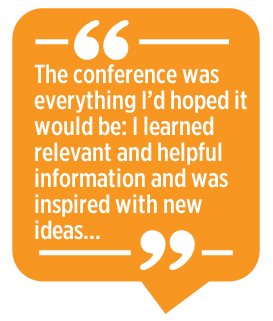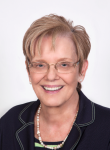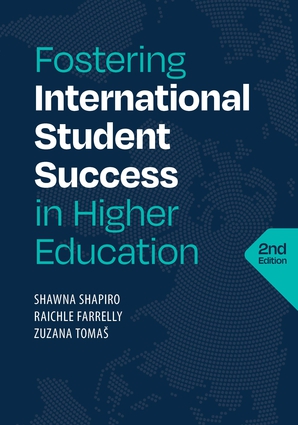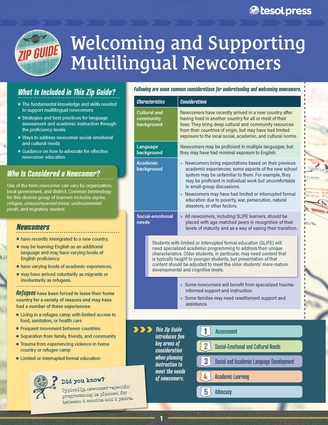TESOL 2023: Inspiring and Empowering ELT Professionals
by TESOL International Association
On 21 March, 2023, the in-person TESOL
International Convention & English Language Expo opened in Portland,
Oregon, USA, with the virtual convention live 3–4 April. Known for its creative
counterculture where art, music, and individuality thrive, Portland was the
perfect host city for a convention that welcomed, in person, more than 3,000
professionals. In-person attendees also gained access to the virtual
convention, where they joined another 4,750 additional professionals who
attended online from all parts of the world, from more than 110 different
countries.

Convention Highlights
In addition to academic, InterSection, and
Professional Learning Network sessions, there were a number of special events.
Preconvention Institutes offered in-depth, hands-on workshops designed and led
by experts on high-demand topics, such as addressing newcomer learners, the power
of collaboration, and creating equity for vulnerable learners. The Graduate
Student Forum offered a place for master’s and doctoral students to support
their peers, present their research, network with peers and faculty, and gain
teaching ideas. There was also a special research mentoring workshop, organized
by the TESOL Research Professional Council, for novice researchers. In Tea With
Distinguished TESOLers sessions, attendees were able to gather with a small
group of colleagues to discuss a current topic of interest with a leading TESOL
expert.
After attending sessions, visiting exhibitors at
the English Language Expo, and networking with friends and colleagues, many
attendees shared thoughts and feelings about their convention experience. Here
are a few of their comments:
-
It was wonderful! It was well organized with
diverse topics and experts in the field. My brain was so happy!
-
I found the Thursday keynote [Rachel Elizabeth
Weissler] so inspiring that I’m now considering going back to school.
-
I really cherished the friendly atmosphere
together with everyone's willingness to share knowledge and
experiences.
-
I got to meet many ELT specialists who I met
online only. Meeting them in person was entirely an amazing
experience.
-
Overall, the conference was everything I'd hoped
it would be: I learned relevant and helpful information and was inspired with
new ideas and visions for the future of my career.
Attendees flocked to the TESOL
Bookstore, where they received a special convention discount on
books, including new releases like ELT
Basics: A Beginner’s Guide to English Language Teaching; Fostering
International Student Success in Higher Education, Second
Edition; and the TESOL
Zip Guide: Welcoming and Supporting Multilingual
Newcomers.
 New this year was the TESOL Fair, where attendees
were able to engage casually with TESOL’s communities
of practice (groups formed around professional topics) and professional
councils (groups that provide professional expertise to help advance
the association’s strategic objectives and activities) and learn about who they
are and what they do.
New this year was the TESOL Fair, where attendees
were able to engage casually with TESOL’s communities
of practice (groups formed around professional topics) and professional
councils (groups that provide professional expertise to help advance
the association’s strategic objectives and activities) and learn about who they
are and what they do.
To close the convention, TESOL held its Annual
Business Meeting, where TESOL members gathered to hear updates on the
association’s growth over the past year. New board members were sworn in, which
included the passing of the gavel to the association’s new president, Shelley
Taylor, and the installation of Debra Suarez as president-elect. Other new
board members included Kisha Bryan and Cynthia Wiseman.
Popular Sessions
The 2023 convention provided attendees with many
opportunities to add to their educator toolkits. Seven-hundred fifty in-person
sessions and 160 virtual sessions covered strands like advocacy, social
justice, and community building; language assessment; content-integrated
approaches; and digital learning and technologies.
As always, the keynotes drew the largest crowds.
Here were the keynotes in Portland:
Opening Keynote: Sammy
Ramsey
Biodiversity and Diversity in Bio: What’s the
Point?
Presidential Panel: Joyce
Kling
Inspiring the Future of Research in ELT
Thursday Keynote: Rachel Elizabeth
Weissler
Language, Power, and The Brain: Linguistics for
Social Justice
James E. Alatis Plenary: Asmaa
AbuMezied
Demanding Economic Justice for Care Work
For an idea of what else English language
professionals found interesting in 2023, here are a few of the most attended
and viewed sessions, in no particular order:
- Google Translate: How L2 Readers Use It and Its
Effects
-
Using Technology to Teach, Learn, and Assess L2
Speaking
-
Teacher Leadership for School-Wide English
Learning (SWEL)
-
Meeting the Needs of Newcomer Multilingual
Learners
-
Gamification Approach: Pear Deck and ThingLink as
Interactive Teaching Tools
-
Implementing Flipped Learning to Teach
Source-Based Writing
-
Decolonizing the English Language Classroom: A
Guide to Self-Reflexive Practices
-
Effective Teacher Training Strategies for
Reluctant English Speakers
-
Integrating Social-Emotional Learning Practices
Into Daily EL Lessons
-
Perspectives on Critical Language Awareness:
Theory and Practice
-
Empowering Classroom Teachers to Embrace
Differentiated Planning for MLs
-
From the Ground Up: Building Undergraduate and
Graduate Pathway Programs
-
Leadership Pathways in TESOL
-
Your AI Tutor: Delivering Adaptive, Interactive
Speaking Practice on Demand
-
Diverse Family Engagement: Families Coming
Inspired and Emerging Empowered
-
Empowering College Faculty to Support and
Advocate for International Students
-
Enriched Language Learning Through Mindfulness
and Exercise-Based Brain Boosters
-
Instructor Fear of Student Plagiarism: Impacts on
Instructional Practices
-
Supporting Young Writers to Thrive in
School
-
Utilizing Reflective Portfolios in the Evaluation
of Teacher Training Programs
-
Incorporating Translanguaging Perspectives Into
the ELT Classroom
-
Overcoming Burnout: Livening Up Your Teaching
Career With PD
-
Ending the War or Ending the World? New Peace
Linguistics
TESOLers in Motion
Take a look at some awesome photos from Portland
covering just a handful of the many events and sessions—see if you can spot a
friend, colleague, or yourself! Check out more
convention photos here.










TESOL 2024
It’s never too early to start planning for next
year’s convention! The 2024 convention will feature in-person presentations in
Tampa, Florida, USA, Thursday through Saturday, 21–23 March 2024 and virtual
sessions, 11–12 April. The deadline for all proposal
submissions is 1 June 2023.
To learn more about TESOL's support of Florida
English language educators, click
here.
To become a proposal reviewer, apply
here (deadline 5 May 2023).
TESOL Blogs
Interested in writing a blog for TESOL?
Read the submission guidelines and send us your post!
Check out some of the most recent TESOL Blogs:
|
Revisiting Blogging for English Learners in 2023, by Brent Warner

Years ago, talk about blogging for English learners was all the rage. Teachers were getting their students on Blogger, WordPress, Posterous, Tumblr, and more. One of the most powerful features of blogging was that it was public — anything students wrote could be read and commented on by anyone. We’ll get back to this point later, but as most schools began to move into all-encompassing learning management systems such as Canvas, Edmodo, Google Classroom, and others, the idea of public blogging for students faded away in favor of walled-in writing assignments that only teachers could see. But the value of blogging hasn’t faded! All of the arguments in favor of blogging continue to ring true. Read more. |
|
On Bike Riding, Reading, and Young Learners’ Biliteracy Development, by Spencer Salas

Greetings from the University of North Carolina at Charlotte! This spring, I’ve taken up riding my bike through the neighborhood again. It’s an especially beautiful time of year; and, the azaleas and dogwoods are in full bloom.
I learned how to ride a bike when I was five or six years old in a San Antonio, Texas neighborhood back in the day when we didn’t wear helmets and when small children roamed neighborhoods fearlessly without the protection of their parents. Read more. |
|
Creating Space for Translanguaging for Elementary School-Aged MLLs, by Judie Haynes

Many years ago, when I taught elementary English as a second language (ESL), I created and laminated labels for items in the general education classrooms where multilingual learners were assigned. Since multilingual learners (MLLs) in my school spoke a total of 18 different languages at the time, I tailored my labels to the languages spoken in each classroom. I thought of these labels as both a vocabulary development activity for my MLLs and an introduction to various cultures for their English-speaking peers. I’d never heard the term translanguaging during my graduate studies in ESL and bilingual education. Read more. |
TESOL Bookstore

Featured Resources from TESOL Press
ELT Basics is an invaluable resource for those seeking a straightforward, practical, and foundational understanding of English language teaching. This book covers a broad range of important topics, such as what it means to “know” a language, how people learn new languages, and what teachers can do to teach English effectively. Whether you’re looking for a basic understanding of ELT or considering a career in language teaching but want to know more first, this book will teach you about language acquisition as well as how to plan, instruct, and assess multilingual learners of English.
 Fostering International Student Success in Higher Education, Second Edition
Fostering International Student Success in Higher Education, Second Edition
Shawna Shapiro, Raichle Farrelly, Zuzana Tomaš
(Copublished by TESOL and NAFSA)
The increase in the number of international students attending English-dominant schools brings benefits as well as challenges for institutions. Shapiro, Farrelly, and Tomaš provide a lively, informative discussion that answers the questions instructors commonly ask when seeking to ensure success for these students: What do I do to help students be successful in U.S. academic culture? How can I ensure that the content for my course is comprehensible to students who are still learning English? How do I design assignments and assessments that are fair while still acknowledging the difficulty of doing academic work in a second or foreign language? How might I treat international students as a linguistic and cultural asset in the classroom, and help them to become institutionally integrated?
 TESOL Zip Guide:
TESOL Zip Guide:
Welcoming and Supporting Multilingual Newcomers
Amber Warren, Melissa Hauke, Jan By Ying Hui-Michael, Adrienne Johnson
Newcomers are students who have recently immigrated to a new country, may be learning English as an additional language, and may have varying levels of English proficiency. This guide introduces five key areas of consideration when planning instruction to meet the unique social-emotional, linguistic, cultural, academic, and programming needs of multilingual learners of English who are newcomers. It includes strategies and best practices for language assessment and academic instruction through the proficiency levels, and guidance on how to advocate for effective newcomer education.